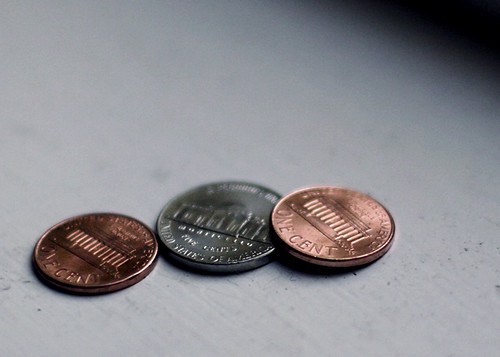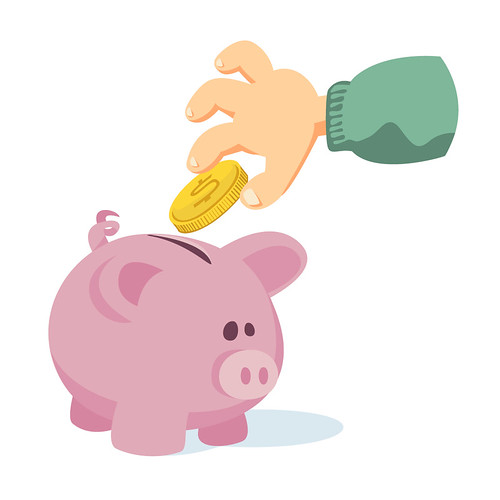Let’s face the fact that the thing we stress over more than anything else relates to money. It’s always about money; do we have enough, too much (okay, I don’t know anyone who stresses over having too much), bills, savings, investing, being robbed, taxes… ugh.

You know what? Turns out that rich people don’t worry about money. They do think about finances and ways to grow their wealth, but overwhelmingly they think more about lifestyle than the money.
Of course, that can get you into trouble if you’re not being smart. After all, how many tales are there of athletes and big lottery winners who are quickly poor after having so much? Think about this another way; how rare is it to read a story about a person who grew up wealthy who’s not anymore? In today’s world, that’s uncommon.
It’s all about two things. One, the amount of money you can generate; two, how you think and what you know about that money.
We could have gone about this list of tips to relieve financial stress in two ways. One would have been long and boring, with lots of detail that no one would have read. Instead, I decided to do it as if I were writing for the site Lifehack; relatively simple stuff that, hopefully, still gets its point across.
We also chose the number 16 since we’re about to go into 2016. Here we go:
1. Spend less than you think you have
This is slightly different than the normal advice of only spending what you can afford. Here, I’m giving you the job of moderating yourself based on what you think you make without really knowing. Of course, it’s always better to…
2. Find out how much you actually have
I always worry about throwing around the B-word… budgeting, because it scares a lot of people. That’s too bad because it’s always better to work from a knowledgeable position than guessing.
3. Invest at least a little
Any time you can grow your money without missing it you’re going to do better than not doing anything. Going the savings account route makes little sense because you make so little it’s not really investing. Even if you start with only $10 a month in a mutual fund (you’ll probably have to start with a larger lump sum; call an investor and ask), your money will still grow faster than that.

4. Stash a little in your home
At the risk of alerting someone to the fact that I have money in the house, I always have at least a little bit of emergency money stashed away somewhere, as well as some money I put away to blow on anything I might want after I reach a certain amount.
I separate my change into 3 bundles: one for rolling up, one that goes into a money jar for future fun, and one so I can grab change to take with me when I go out. I also toss extra dollars into a container in my office that builds up until I might need or want something. I’m not going to say how much it is, but I’m never going hungry for long that’s for sure.
5. Buy some things in bulk
If you have a place to put it, it’s smart spending slightly more money up front for more goods that will last a long time. I go to a wholesale outlet store and buy paper products, like toilet paper, in bulk that comes to at least a 50% discount off what it would cost at a grocery store. I also sometimes buy foods I can freeze, like bread, in bulk whenever I see special deals. Think about it; there’s some things you’re always going to need.
6. Don’t always buy new things as soon as they come out
I’ve never understood those people who camp out to buy the latest iPhone when they just bought a new one the previous year. Most brand new things never justify the cost, no matter how much you try to convince yourself that it does.
7. Don’t stress over small purchases you enjoy
Many financial sites tell people to save on things they love such as that cup of coffee at Starbucks every morning. I don’t drink coffee, but I do like sweet tea so I’m always stopping at McDonald’s to buy that and a small batch of french fries. That comes to around $2.75 each time, but I smile like a baby each time I start to consume each. That’s worth saving the money by coming home, making my own tea and not having fries any day.
8. Shop around for good deals
We have this wonderful thing called the internet that allows us to research items we want for the lowest price possible… although I’ll warn that the cheapest isn’t always the best. I’ve found that I save hundreds of dollars a year on replacement diabetes supplies by going to eBay; I have no shame.
9. Free fun is pretty good fun
Go out for a walk. Read a book. Talk to friends. Hang out on social media. Watch some of the movies you’ve already purchased or just watch some TV. If your first thought to have fun or make yourself feel better involves spending money, you need to think some more.

10. Invest in your future financial health
You don’t buy life insurance to protect yourself now; it’s for you or your family’s long term security. So is long term care care insurance, health insurance, homeowners or apartment insurance, auto insurance… anything you can protect yourself from that could cost you a lot of money down the line is worth looking into, especially while you’re young, when premiums will cost you a lot less.
11. Invest in your financial business future
You know what? You can never make too much money; that’s the truth. Money isn’t everything, but it offers security and options that not having it does. Think about your present career; is it helping you to live the life you want? Is it secure? Can you make more money, even if it’s side money? Would more education help increase your income? Things to think about.
12. Talk to people who seem to have a handle on their finances
We all know someone who seems to be living fairly content lives financially. Sometimes it’s not what you think it is, but here and there you meet people who are living quite comfortably and in abundance, and often they’re willing to share advice.
13. Get an accountant or money manager
Sometimes it takes spending money to make money, learn about money, or protect money. If you work for yourself, even if you know what you’re doing, it’s much easier having an accountant who can balance your books and do your taxes. The same goes for a money manager, someone who can handle your investments or help you budget your money and pay your bills.
14. Don’t be reckless with money; don’t be too tight either
Spending extravagantly because you want to impress others or because it makes you feel good isn’t smart. Being so frugal with your money to the point that you won’t even think about investing $2 in the Powerball when it’s over $300 million, no matter the odds, is playing things too safe.
15. Coupons and discounts are your friend
Lauren Greutman not only helped her family become financially independent by learning how to use coupons and discounts on clothes and such, but she’s turned it into a successful career where she not only shows others how to do it but has appeared on all sorts of TV shows. Don’t be too proud to knock off a few cents or dollars here and there.
16. Rest, relax, meditate… have fun!
If money’s always on your mind it’s time to think about other things, even if it’s for a short period of time. Do the above or go out and have some fun. Trust me, rich people are taking breaks from making money and playing hard; so should you!
Good post! Budgeting good or, for many an even better option, is to simply track spending. I find budgets get people in the mindset that they have to spend that money they’ve earmarked for a particular thing. Tracking spending and making small changes has led me to a 50%+ savings rate.
Most people think budgeting means to do what you say it does. The way we see it, budgeting gives you many options, including being able to put money into investments or a rainy day fund. At the very least it makes sure all bills are paid.
This is some really good information about how to deal with getting your finances in order. It is nice to know that it would be smart to consider buying things in bulk because it will help you save money in the long run. It does seem like a good thing to get a professional accountant to help with figuring out ways to save money.
Thanks Emily. The main idea is to look at the labels in the stores to make sure people are getting the best deal. Do you have that in Australia?
Budgets are huge! At some point it is easier to budget than it is to increase your income.
Thanks for the great post!
– Gale
At every point it should be easier to budget lol If people can get used to doing it their lives will feel less stressful.